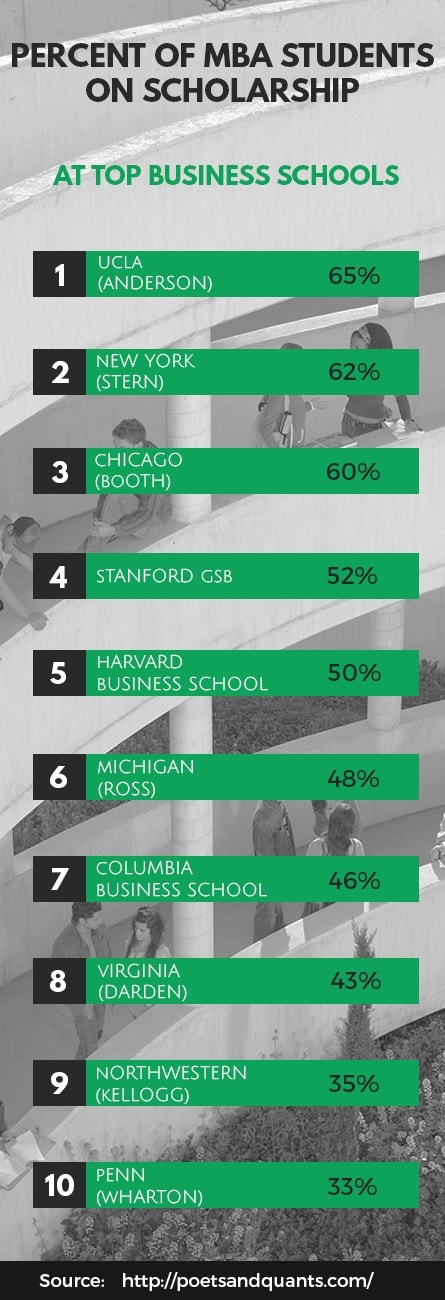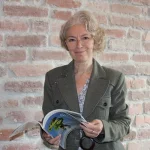
The contest to win MBA scholarships is becoming more and more competitive every year. Keeping this in mind, however, candidates should not get discouraged. There are basic rules that may give you some advantage, if taken into account. Those adamant they will succeed in the race first need to understand the rules of the game and be prepared to plunge into it headfirst.
Before moving on to the more important aspects, there are a few things to sort out first and foremost: one is time, the other is the basic prerequisite of language proficiency, and the third is the diversification of funding sources.
Time may prove to be the most decisive factor when it comes to improving your chances to win MBA scholarships, grants and other financial awards.
The earlier the decision for applying for the MBA scholarships is made, the better your chances in the competition itself. If a prospective student relies on a scholarship to partially fund his/her studies, it is best that this preparation begins at least a year before the scholarship application deadline.
Candidates who are not native English speakers could also be required to take TOEFL, IELTS or any other language test. Just as for GMAT, which will be the most important test, don’t aim for the minimum required score. Aim higher, as your battle is not just for entry but for a scholarship as well.
And remember to diversify your funding options. Don’t go for only one scholarship or grant, apply for as many as possible, provided that you fulfil their criteria. You will be considered for a suitable award automatically upon enrolment, but don’t stop searching for other under-advertised options.
Find our more about the How to win MBA Scholarships in our Q&A Session

From excellence to uniqueness
There are two very important factors to focus on when trying to win MBA scholarships.You can think of them as the two main selling points that you, and you alone, possess.
One is your achievements, or tangible proof of your academic and professional performance, and the other is your character, which is a mix of intangible traits that make you unique. These two broad strokes are what sets one person apart from another, and what makes the difference between a scholarship applicant and a scholarship winner. Understanding what to say in order to convince your benefactor that you deserve the money is half the battle.
Being able to explain and emphasise how these two directions have developed throughout your life in order to make you so different and valuable that you deserve the money, is the other half.
Your achievements matter.
Build your cover letter for the scholarship around them.
The combination of high academic results, a good GMAT score and evidence for your professional excellence may be crucial in persuading the selection committee that it is you who deserves the award. Quantify your successes. For example, if, as a Sales Manager, you achieved higher results for your company last year in comparison to the previous one, don’t be shy to state it clearly. Use numbers. This tangible data should prove to the Committee that your results are true facts, not imaginary pretences.
Your uniqueness matters.
There are intangible personal characteristics that make your application stand out.
Emphasising your inner value and integrity as a human being is key here. Have you previously won a prestigious scholarship or written a book that has been published? What voluntary work for a prestigious body like the UN, for instance, have you been involved in? What kind of innovation have you created or do you want to create? If you are a female leader, take some time to reflect on this. The goal is not to display vanity or to brag about accomplishments. It is to get the committee to know you, as they don’t possess telepathic powers. It is you who should present yourself to them.
Be as specific and as clear as possible about your career plans and achievements in your essays.
If you are persuasive and consistent in your motivations, the selection committee will appreciate it and encourage it.
Highlight the connection between your past educational experience, professional background and the way that you see yourself in the future. With a Bachelor’s degree in media, several years of experience in the same area, and the ambition to succeed in the sphere of new media, there is a very good possibility that you will present a strong case to the jury.
Should you want to switch careers, give credible arguments about how the change will take place and emphasize your qualities and experience that make you suitable for the new field.
Present letters of recommendation that not only show you in a good light but are realistic and come from people who have supervised you and were in a position to know you well. This is not the most important thing, but it also matters.
Understanding the differences
Apart from the merit-based scholarships, schools grant there are scholarships based on financial need. Beware of misinterpreting the term ‘need-based’, though. The decision for specifically taking you on board and giving you a scholarship will have more to do with your academic success and leadership potential, as shown in your CV, than just the bare need for money.
Although the systems vary in different countries, good schools, especially in the US, offer generous assistance. Be prepared, though, that it will most likely cover only a portion of the expenses. Poets&Quants estimated that the top 25 American business schools give out more than 220 million USD in scholarships to their MBA students annually:
In fact, it’s hard to find a school that has not significantly boosted its scholarship funds in recent years, or is not in the midst of a fundraising campaign of which a major portion of the new money will go to discount tuition.
In some American schools, according to the article, it has also become quite normal for students to try to negotiate the award amount with the school.
Opportunities are not limited to your business school alone.
See if you are eligible for an award based on your nationality.
Citizenship matters, and it might not only be your government that distributes money, but also different NGOs. If you are a French citizen or want to study in France, check the French Embassy scholarships and the Campus France website. Also see FONGECIF, Conseil Regional, OPCA, FAFSEA and the Eiffel Scholarship programme. If you are German, see what DAAD can do for you and whether you are eligible for an award by certain German corporations.

If you are a woman with leadership potential, or belong to a minority group, you could also be suitable for a specific scholarship.
The Forte Foundation gives awards to female MBA students and the Consortium for Graduate Study in Management offers MBA fellowships to African Americans, Native Americans and Hispanic Americans in the USA.
A scholarship application is a process that not only examines the abilities of the candidates but also their very motivations and career goals.
This is the reason why you need to be confident about the choices you’ve made throughout your life and demonstrate consistency and coherence in pursuing your goals. Being able to prove your uniqueness is a product of that confidence and the best way to win MBA scholarships.
This article has been produced by Advent Group and featured in the 2015-2016 Access MBA Guide with the title “Learning to Sell Yourself”.
Explore more option to Finance your MBA Studies



Comments
There are no comments.